Cybercrime in Mozambique increased by 16% last year
Let us rise up and start rebuilding – Archbishop of Beira on the aftermath of Cyclone Idai
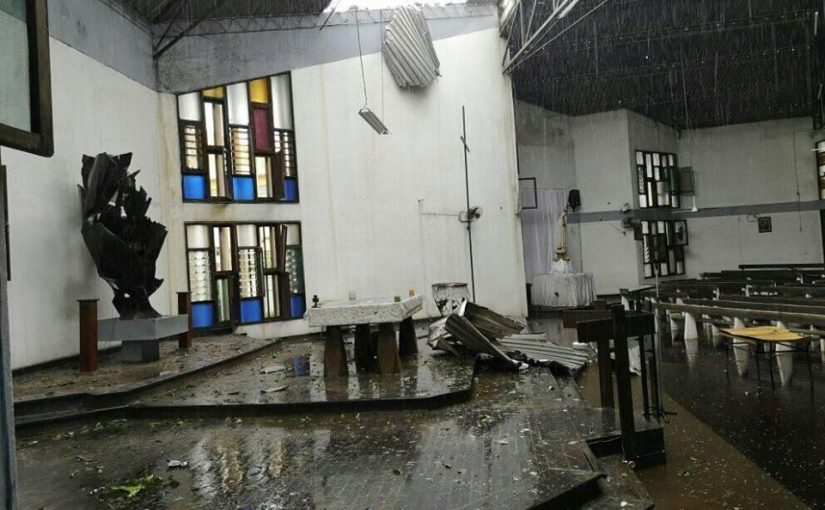
Photos: Arquidiocese da Beira / Facebook
The Catholic Church has set up a Diocesan Emergency Commission on the wake of Cyclone Idai. Don Claudio Dalla Zuanna, writes in a message made public on the Archdiocese Facebook page last Sunday (18), immediately after partial communication was being restored in Beira. Please read below:
“Let us rise up and rebuild, God causes us to triumph,” Neemiah 2: 18-20
“Between 14 and 15 March this year, the inhabitants of the cities of Beira, Dondo and of the “Beira corridor” – where about one million people live – watched, desperate and inert, the destructive effects of Cyclone Idai, accompanied by heavy rains; a phenomenon described by many as something “never” seen or narrated in the annals of this province of Central Mozambique.
“In its passage through the “Chiveve lands,” Cyclone Idai reaped several dozens of human lives (still provisional data) and left many injured. Houses, schools, hospitals and churches were left without a roof and in some cases, the walls collapsed. Countless trees fell on buildings, roads and vehicles, making it difficult to walk; the electrical and telephone network has been damaged and has not been restored to date; there is also no supply of drinking water, and food is scarce, since much of the food has been spoiled by continued rainfall or lack of electricity for its conservation. We have information that some rivers are overflowing, as is the case of the river Búzi and Púngué, leaving the Village of Búzi submerged.
“Also the city of Beira is isolated, since the only route of terrestrial access was cut by the fall of a bridge.
“As a diocesan church, through parishes and Caritas, we are activating an emergency plan to meet the most urgent needs.
“Beira and Episcopal Palace, March 18, 2019
The following communiques were also posted on the Archdiocese Facebook page. The first post below (from March 21) is a general overview of the post-Idai situation. The second post (March 20), contains information on two accommodation centres in Beira, where displaced people told visiting members of the Emergency Commission that, to that day, they had received only one kilogram of rice and one kilogram of sugar per family since March 15. The last post (March 19), is a list of damage on Church property. Please read below:
Status – March 21
It has been a week since the tragic night of Thursday to Friday, when Cyclone Idai reaped an unknown number of lives, caused damage to about 90% of homes and blew down many of the shacks in the outlying neighbourhoods of the city.
Today is the first day that it hasn’t rained, but the only road into the city is still cut. Many people lost all the food they had, and already in the few warehouses where something was left the products are scarce. Electricity and mains piped water has still not been restored.
Water and food are the main priorities at the moment.
The Diocesan Emergency Commission continues to hold daily meetings with Diocesan Caritas to coordinate what response we can muster. Tomorrow three water supply points to be supplied by Diocesan Caritas should start operating.
The members of the commission in charge of information are staying in contact with the authorities, gathering and sharing information and listening to the people in the neighbourhoods.
The commission is also conducting a survey of damage to parish structures, social work of th church and religious establishments.
The great concern now is food and water. Few are even thinking of reclaiming their lives – we are still in the midst of the emergency.
To this already difficult situation is added the of the ongoing floods, with thousands remaining to be rescued, especially from neighbouring Vila do Búzi.
Without help, it will take people years to get back to the situation from which they have fallen.
Status – March 20
People at the ‘Ndunda 2’ accommodation centre reported that, since March 15, they had only once received aid from the National Institute for Disaster Management – a government institution, food aid such as 1kg of rice and 1kg of sugar per family.
The Munhava neighbourhood accommodation centre, set in the Amílcar Cabral School, is home to approximately 1,500 people and is expected to receive more people in the coming days. The centre cooks all the food received and distributes it to everybody there. Drinking water is available, though with some difficulty.
The accommodation centre set in the Complete Primary School of Munhava Central houses 228 people. Since 15 March, they have received 1 kg of rice and 1 kg of sugar per family. Drinking water is supplied although with some difficulty.
People in the three centres we visited are desperate and lacking minimal means of survival. Furthermore, it is estimated that the continuing rain will drive many more people to the centres.
Across all accommodation centres, the following difficulties were the most urgent:
Lack of drinking water or water treated for consumption;
Lack of staple foods;
Lack of medication or nearby first aid (Ndunda);
Lack of mosquito nets, while people sleep in the open or in classrooms without ceilings or windows and on wet floors.
Lack of mattresses.
Damage in the [Beira] diocese: Status report, March 19
Tropical cyclone Idai mainly affected the “Beira corridor”, a path about 130 km wide, inhabited by approximately one million inhabitants and containing 25 parishes.
Here is a summary of the damage suffered:
Population affected: An estimated 140,000 families have suffered losses, of which 10 to 20% have lost everything.
Parish churches and communities: 22 Parish churches were damaged, of which 3 were totally destroyed; 60 small chapels were damaged.
Parochial residences: 9 were damaged, some seriously.
Religious residences: 20 damaged.
Catholic schools: 7 schools serving about 9,500 students were damaged; these are classrooms left almost completely without roofs, with classes interrupted.
Diocesan structures:
– Episcopal residence and Curia (totally without roof, with damages in the offices and archives);
– Pastoral Coordination Secretariat (registered some damage, especially to office material),
– Bom Pastor Seminary (newly built chapel, refectory and dormitories totally roofless, seminary trainers residence roof partially damaged);
– Diocesan Caritas: office severely damaged, also damages to records, computer and office equipment and perimeter wall);
– Nazaré Pastoral Training Centre (200 people capacity infrastructure left without roof and uninhabitable, forcing suspension of all activities);
– Diocesan radio (tower fell, water damage in studios, everything materially damaged);
– Diocesan office (left without roof and with damaged materially);
– Diocesan storage facility (damaged);
– Diocesan homes and orphanages, which shelter about 150 children (damaged roofs and other material damage).
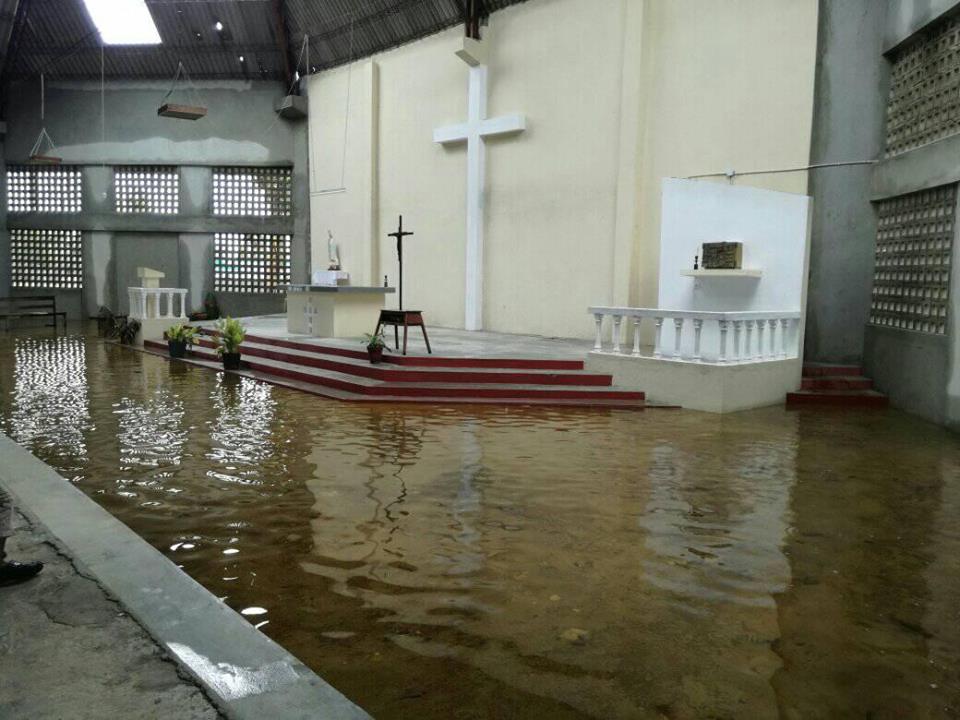
18 I also told them about the gracious hand of my God on me and what the king had said to me. They replied, “Let us start rebuilding.” So they began this good work.
19 But when Sanballat the Horonite, Tobiah the Ammonite official and Geshem the Arab heard about it, they mocked and ridiculed us. “What is this you are doing?” they asked. “Are you rebelling against the king?”
20 I answered them by saying, “The God of heaven will give us success. We his servants will start rebuilding, but as for you, you have no share in Jerusalem or any claim or historic right to it.” (Nehemiah 2:18-20)
About the Archdiocese of Beira
The Roman Catholic Archdiocese of Beira is the Metropolitan See for the Ecclesiastical province of Beira in Mozambique. The seat of the archbishop is Catedral Metropolitana de Nossa Senhora do Rosário (Cathedral Church of Our Lady of the Rosary) in Beira. Suffragan dioceses :Chimoio, Gurué, Quelimane and Tete.



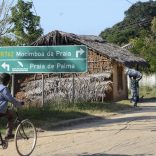
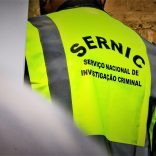


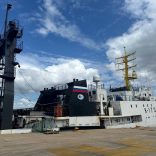





Leave a Reply
Be the First to Comment!
You must be logged in to post a comment.
You must be logged in to post a comment.